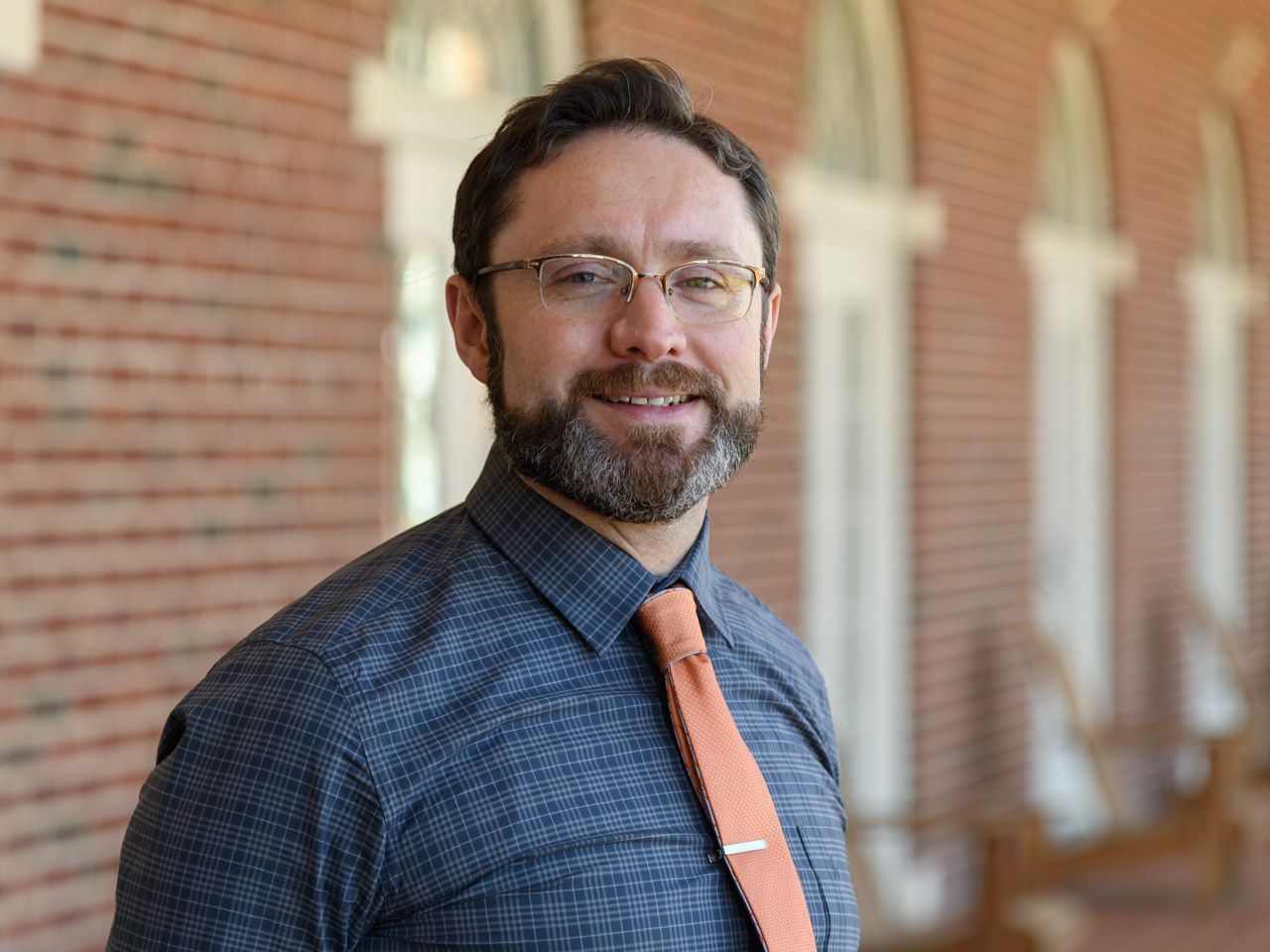Dr. Peter Richtsmeier
Department of Communications Sciences and Disorders
Dr. Peter Richtsmeier is an associate professor of Communication Sciences and Disorders. He joined Oklahoma State University as an assistant professor in 2014. His teaching appointment includes courses related to developmental speech and language disorders. As an example, imagine a 2-year-old child who is not yet speaking. This reflects a severe developmental delay, but the underlying causes are complex, so speech-language pathologists (SLPs) must be trained to determine where the problem resides. It is in speech, essentially meaning that the child is not able to articulate the sounds of their native language? Is it in language, perhaps reflecting a more global developmental delay that limits their ability to use words and phrases? Or is it in language use, as is the case with autism spectrum disorder, such that the child is unable to effectively learn about language from social interactions? Using lectures, case studies, and frequent in-class feedback, Dr. Richtsmeier begins by instructing graduate students on the basics of typical development, helping them identify a child client’s current developmental level. He also provides students opportunities to engage with standardized tests, the current gold standard for diagnosing developmental disorders. When non-standardized testing must be used, such as for culturally and linguistically diverse children, Dr. Richtsmeier provides general guidance, tips based on his own clinical experience, and the recommendations of cutting-edge clinical research. Finally, his courses cover a wide range of treatments that target speech, language, and language use. In sum, Dr. Richtsmeier works with his colleagues in Communication Sciences and Disorders to train Oklahoma’s best SLPs!
Regarding research, Dr. Richtsmeier’s lab explores the details of how children learn to speak accurately. One of the marvels of human development is that children rapidly acquire the complex details of their native language, and they begin speaking that language around their first birthday. Children produce their first words before they can count, before they can use the bathroom independently, but speech development nevertheless extends over several years. How do children learn to produce complex words like “rhinoceros” or complex sounds like /r/ and /s/? This is a basic question driving Dr. Richtsmeier’s research. A consistent finding from his research is that children can produce a complex new word more accurately if they first hear several people producing that word. Another finding is that children benefit from the opportunity to say new words multiple times. When comparing the relative benefits of listening and speaking, his research suggests that speaking generally outweighs listening. However, his most recent studies suggest that speaking can come at a cost: when children produce a new word, they may make errors that will persist in their speech. From the perspective of speech therapy, the minute details of speaking and listening are important. The SLP’s job in speech therapy is to help children produce speech accurately so that they can be understood by others. As such, Dr. Richtsmeier’s line of research may provide SLPs with guidance for when to have their clients listen, and when to have them speak. In sum, Dr. Richtsmeier is pursuing research to help SLPs maximize a child’s chances for success in therapy.
Prior to arriving in Stillwater, Dr. Richtsmeier completed degrees at Purdue University (M.S., 2014), the University of Arizona (Ph.D., 2008), and Washington University in St. Louis (B.A., 2001). Outside of work, he is married with a son and a step-daughter. He and his wife enjoy salsa dancing, running in and around Stillwater, and playing video games with their kids. You might catch the whole family at Boomer Lake or at an OSU Women’s Soccer game.

